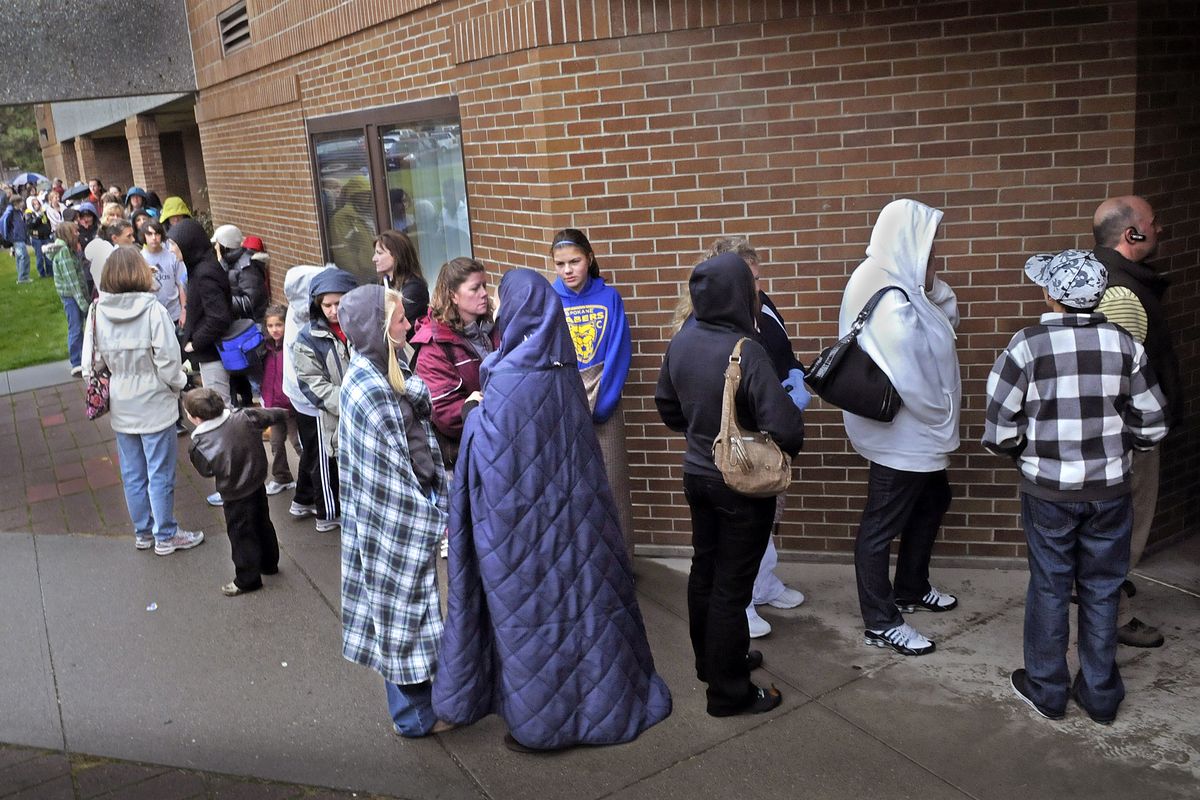Last walk-in flu clinic held
District’s H1N1 vaccine supply short of expectations

Parents and children stood in a chilly mix of rain and snow Thursday afternoon outside of Shiloh Hills Elementary School for the last walk-in swine flu vaccination clinic.
Though there are two more scheduled clinics – Nov. 7 at the Spokane Valley YMCA and Nov. 14 at the north Spokane YMCA – appointments are required.
The Spokane Regional Health District altered its free vaccination clinics this week amid the nation’s short supply of the vaccine.
The district now says people should contact their health care providers to be vaccinated because new shipments will be sent directly to doctor’s offices and clinics rather than public health agencies.
Health district spokeswoman Julie Graham said free, all-access clinics originally were envisioned as a way to serve large numbers of residents, especially the poor or those without a regular doctor.
Thursday’s school clinic was such an example. The district received a grant from Group Health Cooperative to set up vaccination clinics at schools with high rates of children living at or near the poverty level, said Kristi Siahaya, immunization outreach coordinator.
But continued problems with vaccine production nationally has short-circuited the mass-vaccination plans. Furthermore, the vaccine that’s been produced has been mostly in nasal mist form, which is unsuitable for the highest-risk people, such as pregnant women, children younger than 2 and people with underlying health conditions. They need the vaccine in shot form.
The health district anticipated having more than 100,000 doses in Spokane by now. It has received about 22,000.
Washington Health Secretary Mary Selecky said in Spokane on Thursday she’s been told production problems are easing. She expected more than 500,000 doses to be in circulation in Washington by early next week, with major shipments to follow.
Graham said that while the health district has reduced the scope of its vaccination clinics, it could restart the efforts if health care providers are unable to meet demand or if too many people are not being vaccinated because of cost or other reasons.